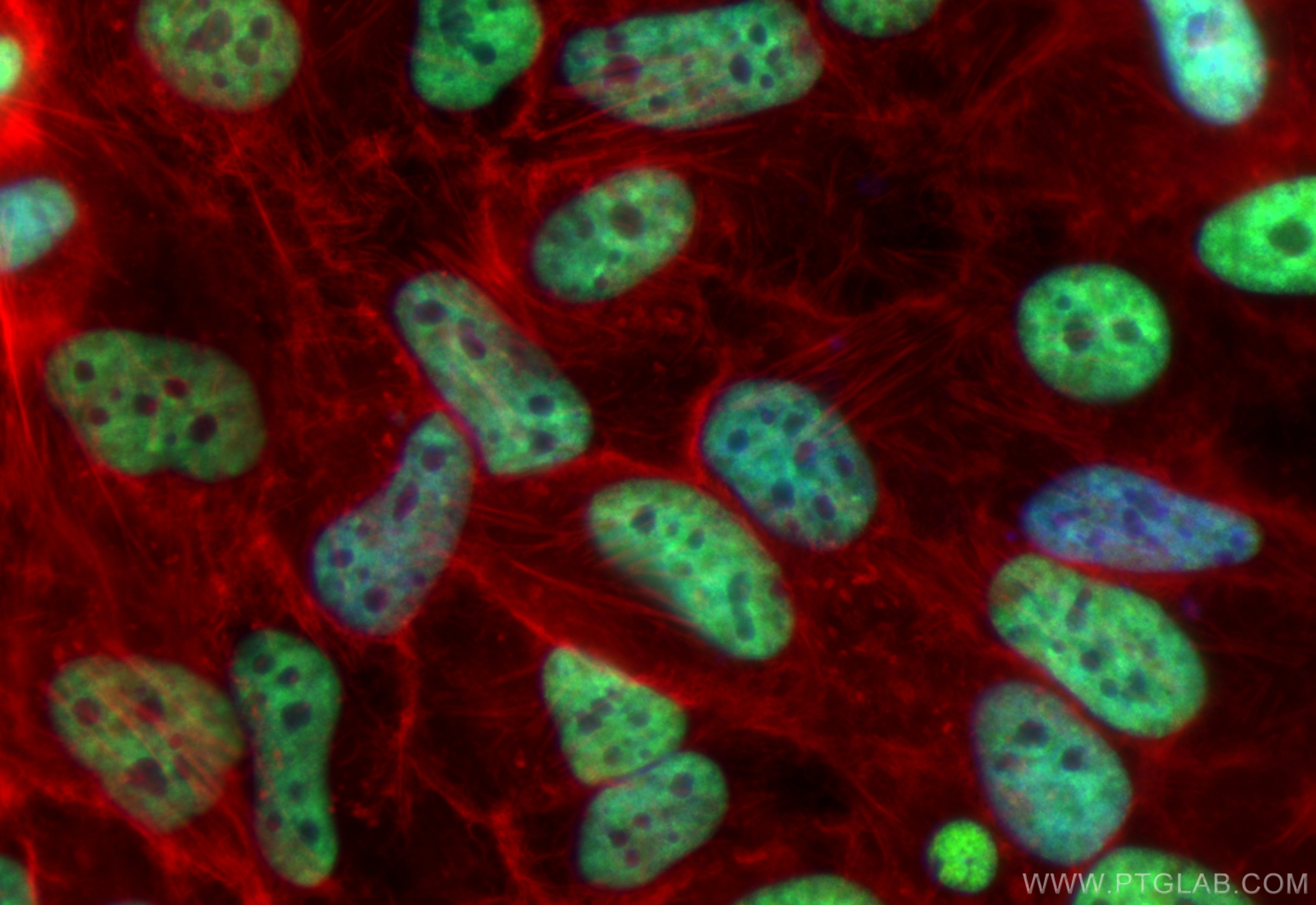Tested Applications
| Positive IF/ICC detected in | HeLa cells |
Recommended dilution
| Application | Dilution |
|---|---|
| Immunofluorescence (IF)/ICC | IF/ICC : 1:50-1:500 |
| It is recommended that this reagent should be titrated in each testing system to obtain optimal results. | |
| Sample-dependent, Check data in validation data gallery. | |
Product Information
CL488-84207 targets HNRNPAB in applications and shows reactivity with human samples.
| Tested Reactivity | human |
| Host / Isotype | Rabbit / IgG |
| Class | Recombinant |
| Type | Antibody |
| Immunogen | HNRNPAB fusion protein Ag35010 Predict reactive species |
| Full Name | heterogeneous nuclear ribonucleoprotein A/B |
| Calculated Molecular Weight | 36 kDa |
| Observed Molecular Weight | 36-42 kDa |
| GenBank Accession Number | BC036708 |
| Gene Symbol | HNRNPAB |
| Gene ID (NCBI) | 3182 |
| Conjugate | CoraLite® Plus 488 Fluorescent Dye |
| Excitation/Emission Maxima Wavelengths | 493 nm / 522 nm |
| Form | Liquid |
| Purification Method | Protein A purification |
| UNIPROT ID | Q99729 |
| Storage Buffer | PBS with 50% glycerol, 0.05% Proclin300, 0.5% BSA |
| Storage Conditions | Store at -20°C. Avoid exposure to light. Stable for one year after shipment. Aliquoting is unnecessary for -20oC storage. |
Background Information
Heterogeneous nuclear ribonucleoprotein AB (HNRNPAB) is a member of the hnRNP family involved in multiple forms of transcriptional control. It plays an important role in normal biological processes and tumor development and progression. HNRNPAB acts as a direct transcriptional target of c-Myc and promotes G1/S cell cycle progression and cell proliferation via CDK4(PMID: 36657708).
Protocols
| Product Specific Protocols | |
|---|---|
| IF protocol for CL Plus 488 HNRNPAB antibody CL488-84207 | Download protocol |
| Standard Protocols | |
|---|---|
| Click here to view our Standard Protocols |



